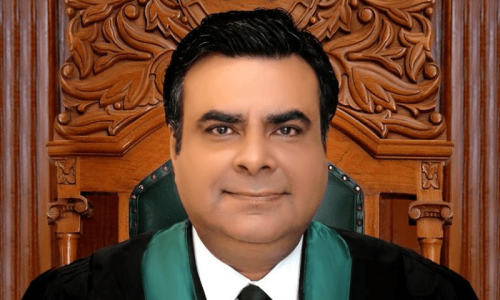HYDERABAD, July 8: There are some 1.7 million bonded labours only in Sindh, says Dr G. Hyder of the National Rural Support Programme quoting a survey conducted by the International Labour Organization.
He was talking to a group of under-training officers of the 31st common training programme of the Civil Service Academy, Lahore on Wednesday. Dr Hyder said that landlords were so powerful that they attacked camps of liberated peasants in Hyderabad and Kotri cities to maintain the scourge of feudal system.
He said that anti-bonded labour laws were there but they had not been implemented by the government. NRSP programme officer Nazar Joyo said that the organization had purchased 20 acres of land with the financial help of the ILO near Kotri site where 400 residential units would be established for liberated bonded labour.
Mr Joyo said that the NRSP had made an agreement with the management of Kotri Association of Trade and Industries under which at least one member from each family residing in the bonded labour colony would be employed in industrial units of the KATI.
He said that at present the NRSP was affiliated with the International Labour Organisation and had established seven camps where 789 freed bonded labour were looked after.
Mr Joyo said that the NRSP had provided soft loans to freed bonded labour to earn their livelihood and added that recovery of loans from them was quite satisfactory. He stressed the need for a permanent rehabilitation of freed bonded labour with basic facilities in the field of health, education, water supply and sewerage.
EDO community development Ibrahim Qureshi who is also secretary of the district vigilance committee on bonded labour said that the district government had appointed a committee to prepare a rehabilitation plan for the liberated bonded labour.
He said that the DVC was striving hard to get a chunk of government land to rehabilitate the liberated bonded labour. He said that the practice of serfdom was still in vogue in rural areas where landlords were keeping tillers in private prisons by advancing them loans which they were unable to repay.
He said that these people did not have any other skill of earning livelihood except cultivation. He said that liberated tillers had to be provided land to enable them to earn their living.
He said that Hyderabad was the first district in the country where the DVC on bonded labour had been formed under the Bonded Labour Abolition Act 1992. He said that the district government was very serious not only in eliminating the menace of bonded labour but also in providing them legal as well as social protection.
He said that the district government soon after constituting the DVC had allocated Rs500,000 and well equipped office to the DVC to make it functional. He said that besides, the legal aid committee, a technical committee (for preparing rehabilitation plan) and security committee had also been formed to enforce the bonded labour abolition act in letter and spirit.















































Dear visitor, the comments section is undergoing an overhaul and will return soon.